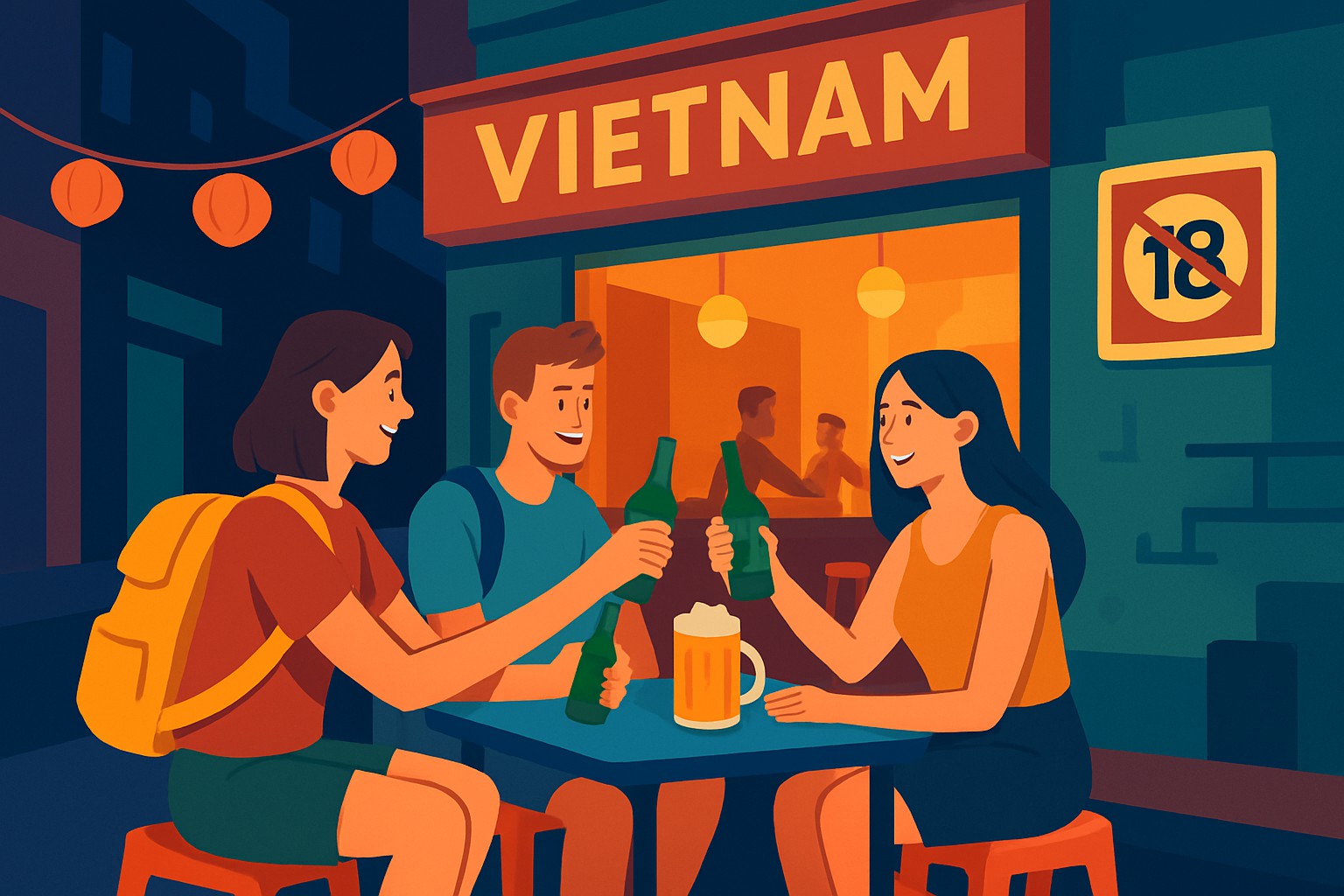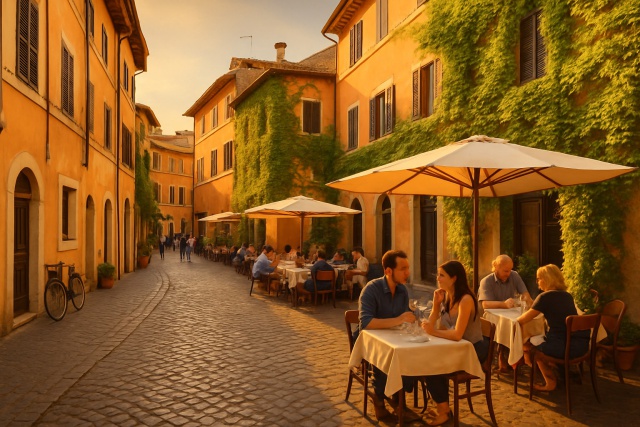What Vietnamese Drinking Age Rules Mean for Travelers

Knowing the Vietnamese drinking age is pretty vital for travelers eager to enjoy local drinks responsibly while steering clear of any legal hiccups.
What You Should Know
Vietnam has national laws that regulate the consumption and sale of alcohol and set clear age limits to keep public health and safety in check.
- In Vietnam the legal drinking age is 18 so no sipping before then if you want to stay on the right side of the law.
- There are some local rules that limit when and where you can buy alcohol—nothing crazy but enough to keep things in check.
- Drinking in public is generally fine but if you get wildly drunk and cause a scene expect some fines.
- You’ll often find police or staff at bars, restaurants and shops asking for ID to make sure everyone is playing by the rules.
- If you decide to bend these laws remember it could cost you with fines or other penalties hitting both sellers and buyers alike.
So, What is the Legal Drinking Age in Vietnam These Days?
Vietnam law firmly prohibits selling or supplying alcohol to anyone under 18. This rule covers everything from beer and wine to stronger spirits. While enforcement around possession can be hit or miss, buying or drinking alcohol in public before 18 is definitely off-limits. Bars, clubs and stores must check IDs if a customer looks too young.
Vietnam's minimum drinking age of 18 is in line with many countries in Asia and Europe but there is a mix of rules worldwide. Take the United States as an example where the legal age is higher at 21, playing it safer. In Europe the legal drinking age ranges from 16 to 18 depending on the type of drink or the region.
| Country | Legal Drinking Age | Notes about Enforcement or Cultural Exceptions |
|---|---|---|
| Vietnam | 18 | Sales are tightly controlled, with ID checks pretty much the norm in cities |
| United States | 21 | Enforcement is no joke nationwide, with serious penalties for selling to minors |
| France | 18 | You’re allowed to enjoy beer and wine at 16, but spirits come with the 18+ rule |
| Japan | 20 | Laws here are taken seriously, and most people start social drinking around 20 |
| Thailand | 20 | Regulations are firm, and cultural attitudes generally frown on underage drinking |
How Drinking Age Laws in Vietnam Can Shape Your Travel Experience
When traveling in Vietnam you will want to have a valid ID handy if you are planning to buy alcohol in stores or at bars especially in busier tourist spots. Some places might give you the side-eye or refuse service if you do not flash the right ID or if you look too young for their liking.
- Tourists will usually need to flash their passports to prove they are old enough before buying alcohol or stepping into nightlife venues.
- Locals tend to give a side-eye to underage drinking, though how strict they are can really vary between bustling cities and the quieter countryside.
- Enforcement is generally tighter in the busy tourist hotspots compared to the more laid-back rural or less developed spots.
- Messing with the drinking age rules can land you fines or a firm no-entry, which is definitely no fun and could throw a real wrench in your travel plans.
Common Ways to Verify Age in Vietnam (Because Nobody Likes Surprises at the Door)
Almost everywhere you will be asked to flash a government-issued ID to prove you are old enough. The usual suspects are passports, Vietnamese ID cards and residency permits. If you are a tourist it is a good idea to keep your passport handy when buying or enjoying a drink.
Getting a Grip on the Vietnamese Drinking Age in Vietnam
Drinking alcohol in Vietnam usually goes hand in hand with socializing among adults. It is often tied to get-togethers, celebrations and occasional business meetings where toasting is a must. While the law clearly frowns on underage drinking, the lines can get blurry due to cultural customs and family settings where those rules aren’t always spelled out clearly.
“In many rural communities, young people often get their first taste of alcohol quite casually within their own families, even though the law firmly sets the minimum age at 18. It’s a prime example of cultural norms that don’t always quite sync up with the official rulebook. You could say the unwritten rules sometimes carry more weight here.” — Dr. Nguyen Thanh Long, Vietnamese Sociologist
Drinking laws tend to be enforced with more bite in urban areas where businesses keep a sharp eye on ages to avoid penalties. Rural communities often take a more relaxed go-with-the-flow approach and sometimes let younger individuals join time-honored rituals.
Handy Tips for Travelers Navigating Vietnam's Drinking Age Rules
- Always keep a valid government-issued ID like your passport within reach to prove your age when buying alcohol. It’s the golden ticket that saves you from awkward moments.
- Stick to local laws and customs even if they seem lightly enforced in some places. It is better to be safe than sorry.
- Never buy alcohol for minors. It’s not just illegal and can land you in hot water with serious penalties.
- Breaking drinking laws can lead to fines or arrest. It’s definitely not worth the headache.
- Make sure you know where drinking is allowed legally especially in public or restricted spots to avoid unexpected fines.
Sticking to local drinking age laws and showing a bit of respect for cultural norms goes a long way in helping travelers soak up Vietnam’s lively food scene and buzzing nightlife without stepping on any legal toes or ending up in those awkward 'what just happened' moments.
How to Navigate Those Tricky Drinking Age Laws
If Vietnamese authorities inquire about the Vietnamese drinking age or your personal drinking habits, it's usually best to keep your cool and cooperate fully.
- Stay calm and polite when dealing with law enforcement or venue staff—keeping your cool really pays off.
- Always have a valid photo ID like a passport on hand—it’s best not to be caught off guard.
- Keep your country’s embassy or consulate contact info close by in case you need help.
- Be aware of your rights and local customs to avoid any accidental slip-ups.
- If you run into fines or legal troubles, consider seeking professional legal advice—you won’t regret having an expert in your corner.





